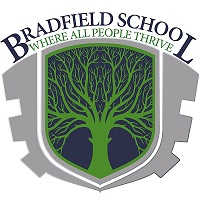The Importance of Feedback

'Do the best you can, until you know better. When you know better, do better.' Maya Angelou
As you come into reception, underneath 'the bridge' you can now read the line quoted above from Maya Angelou, the famous American writer pictured. We choose this quotation to face us as we enter school because we felt it encapsulates the approach we most want to foster in our school community, students and staff alike.
We encourage all our students to always try their best all the time, and then, once they get feedback, to do even better. We also apply this to our staff mindset to improving the provision for our students. It is also therefore the quotation that best links to one of our key foci in teaching and learning this year: feedback.
What is feedback?
Traditionally, feedback in the classroom is seen as written marking given from a teacher to a student on a test or piece of work. This is an important element but as a school, we see feedback as any action that aims to close a gap in our knowledge or application of skill. This may include live written or verbal feedback in class that students act on straight away, as well as peer and self feedback guided by the teacher. Feedback given with this immediacy, or students being guided to work out their own ‘even better ifs’ usually has more impact on a student’s understanding that detailed written marking received several lessons later.
Our work on feedback builds on the Visible Learning training from last year – seeing learning through the eyes of the learner. This ended with a focus on the four levels of instructional feedback which are:
- self feedback: about the person and effort – usually praise
- task level feedback: how well has the task been performed, is it correct or not?
- process level: what are the strategies needed to perform the task, guidance on any forgotten steps or prompts to consider if there are alternatives?
- self-regulation: has the student monitored their own use of the strategies needed and corrected their own course.
Feedback from students
In our staff training on Tuesday this week, we focused largely on the importance too of feedback from the students to the teacher. This is probably more important in many ways than feedback which we give to students. Feedback from students helps us to see if what we intended to teach has in fact been understood, allowing us to adapt accordingly, both in the lesson and in planning subsequent lessons. As such, all feedback we give to students is actually also feedback from them to us about the impact of our lesson on their knowledge.
Redrafting our assessment and feedback policy
We are currently in the process of redrafting our assessment and feedback policy to improve how, and how often, we give feedback to students. As such, we are trying out some whole school approaches this half term. For instance, following the Y9 in class assessments at the end of November we are trialling WWW / EBI stickers (what worked well and even better if). We are also looking at a common approach for subject leaders when collating the overall year group themes that might need to impact curriculum design, starting with the Year 8 assessments in November.
How can parents and carers help at home
Staff continue to use learning intentions and success criteria in lessons so please keep asking your children what they have been learning today and how they knew they were successful and / or what the next steps are. My experience of teaching teenagers is that often they can reply with ‘nothing, don’t know or stuff!’ when parents and carers ask these questions, so thank you for persevering, and where students have taken work home, ask to look in their books with them to help jog their memories! We hope the WWW / EBI stickers trialled from the Year 9 assessments will help you at home to have these conversations too. From this half term, we are also going to send assessment topics home for each of the ‘assessments weeks’ calendared for students in all years, and by the end of the year will have updated our website to provide links to some of the KS3 revision resources. As always, we of course welcome your feedback about our feedback!
Deborah Banks Deputy Headteacher
